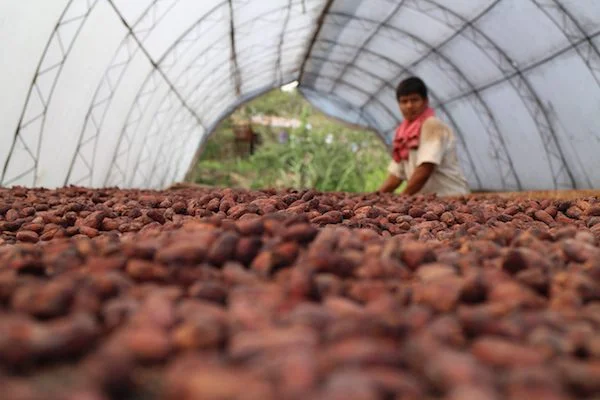Countries producing cocoa have requested the European Union grant them an additional two years minimum to adhere to new EU regulations. These rules aim to ensure that cocoa beans imported into Europe do not originate from deforested areas. Despite growing pressure, the European Commission maintains its focus on implementing the regulation as scheduled.
Last week, cocoa-producing nations signed a joint declaration at the International Cocoa Organisation (ICCO) headquarters in Côte d’Ivoire. They argued that the EU’s implementation deadlines were “unrealistic” given the regulation’s extensive requirements, which range from plot geolocation to establishing a comprehensive traceability system.
The EU’s Deforestation Regulation (EUDR) is set to take effect on December 30, 2024. It mandates that companies selling specific products must prove their goods were not sourced from land deforested or degraded after 2021. With the deadline approaching, the ICCO reported that a traceability system was not yet operational. Additionally, the European Commission had not shared all necessary documents or activated a data-processing platform crucial for implementing the rules.
Cocoa producers warn that rushing the implementation of the deforestation regulation could have negative consequences, particularly for small-scale farmers who risk being excluded from the European market. To avoid “adding uncertainty to an already highly disrupted market,” they are requesting a delay from Brussels. Notably, the EU has already granted extensions to downstream players responsible for bringing finished chocolate products to market.
The ICCO is also seeking technical and financial support from the EU and industry stakeholders to help implement the regulation without reducing growers’ incomes. The new rules apply not only to cocoa but also to palm oil, cattle, soy, coffee, timber, rubber, and their derived products.
Resistance to these regulations has emerged from within the EU as well, with some member states joining the call for postponement. German Chancellor Olaf Scholz recently stated he would advocate for a delay until concerns raised by Germany’s newspaper publishing industry were addressed. Publishers, affected as consumers of paper derived from wood, claim the regulation would create unmanageable bureaucratic burdens.
Brazil, a major supplier of several affected commodities to the EU, has written to the European Commission requesting the regulation be suspended and for the EU to reconsider its approach to combating deforestation altogether.
Despite mounting opposition, the Commission reaffirmed earlier this week that the goal of implementing the EUDR by December 30, 2024, remains in place. Commission spokesperson Adalbert Jahnz told reporters in Brussels, “The Commission is still working very hard on preparing the ground for the implementation of this regulation






















